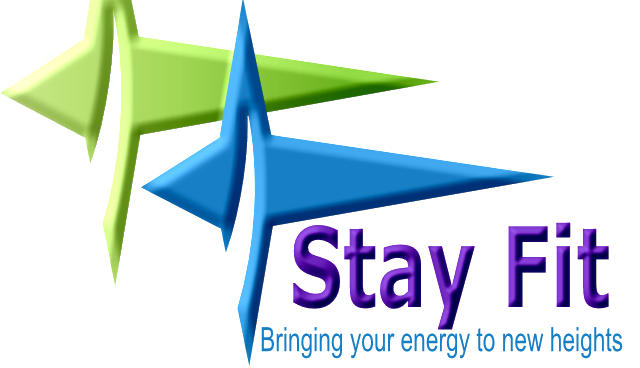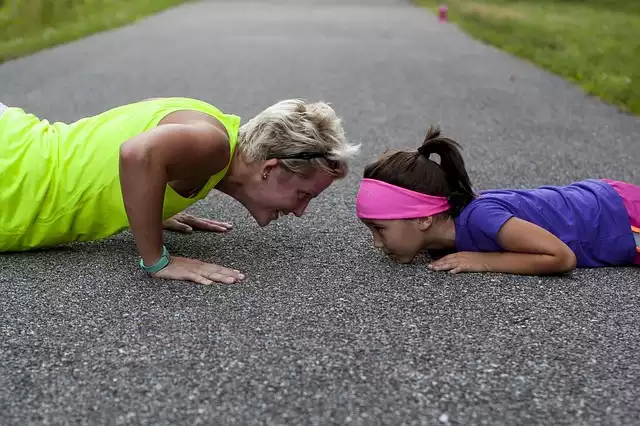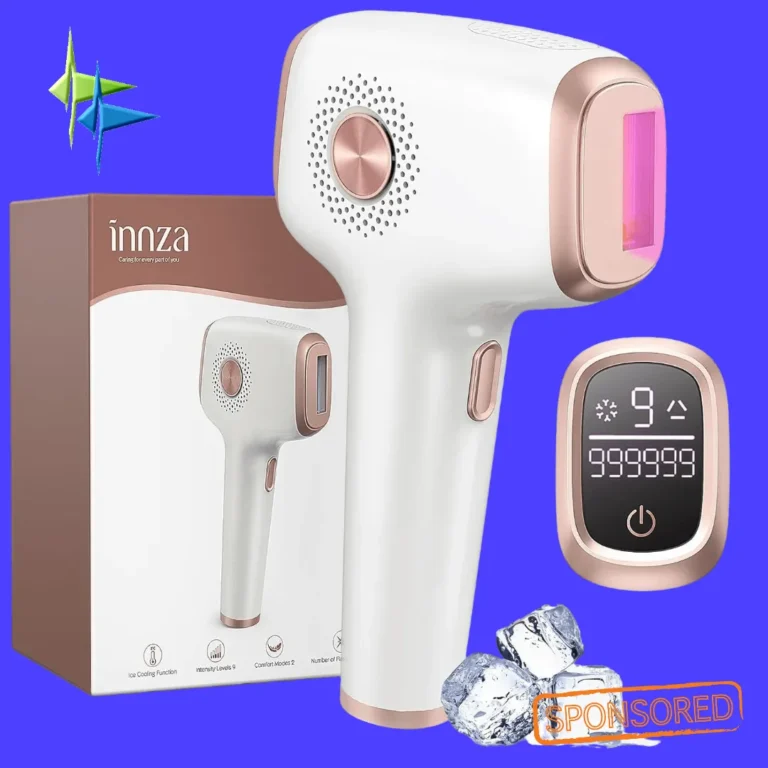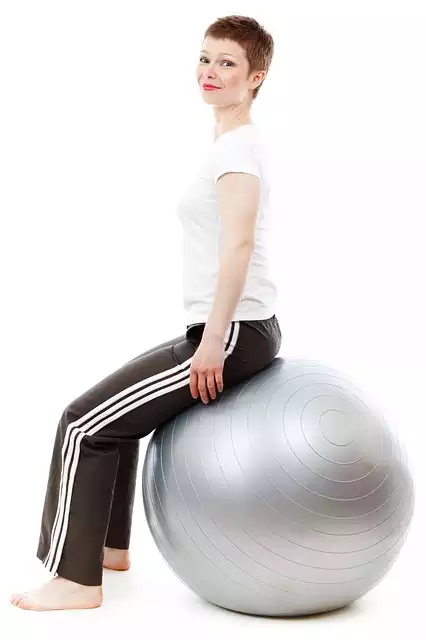Personal Fitness Merit Badge
Imagine waking up with a surge of energy, ready to conquer the day with both physical strength and mental clarity.
This isn’t just an aspirational dream; it’s a tangible reality that can be achieved through dedication and knowledge.
Enter the Personal Fitness Merit Badge—a gateway to a healthier, more disciplined lifestyle for Scouts everywhere.
This merit badge isn’t merely about logging hours at the gym or running laps around the track; it’s a comprehensive journey into understanding one’s body, setting realistic goals, and cultivating habits that last a lifetime.
Whether you’re looking to improve endurance, build muscle, or simply feel better in your own skin, earning this badge provides invaluable lessons that extend far beyond fitness alone.
Let’s delve into what makes the Personal Fitness Merit Badge such an essential endeavor for any Scout aiming to enhance their well-being and character simultaneously.
Achieving optimal physical health and fitness is a key component of leading a balanced and fulfilling life.
The Personal Fitness Merit Badge is a program designed to help individuals develop the knowledge and skills necessary to improve their overall well-being through proper diet, exercise, and lifestyle choices.
This badge, offered through the Boy Scouts of America, encourages participants to set goals, track their progress, and make positive changes to their daily routines.
By completing the requirements of the Personal Fitness Merit Badge, individuals will not only enhance their physical fitness levels, but also gain valuable insights into the importance of self-discipline, perseverance, and goal-setting.
This article will explore the various components of the Personal Fitness Merit Badge, including the physical fitness assessment, the creation of a personal fitness plan, and the completion of a 12-week fitness program.
Additionally, we will discuss the benefits of earning this badge, both in terms of personal health and well-being, as well as the potential for leadership and character development.
Join us as we delve into the world of personal fitness and discover how the Personal Fitness Merit Badge can help individuals of all ages achieve their fitness goals.
Table of Contents Personal Fitness Merit Badge
Understanding of fitness principles required
In order to effectively achieve and maintain physical fitness, individuals must possess a deep understanding of fundamental fitness principles.
These principles, encompassing aspects such as cardiovascular endurance, strength, flexibility, and body composition, serve as the foundation upon which successful fitness regimens are built.
Without a comprehensive comprehension of these principles, individuals may struggle to develop personalized fitness plans tailored to their specific needs and goals.
Additionally, understanding the significance of proper nutrition, rest, and hydration in conjunction with physical activity is crucial for optimizing overall health and fitness outcomes.
By cultivating a solid grasp of these essential fitness principles, individuals can make informed decisions regarding their physical well-being and work towards achieving a balanced and sustainable approach to personal fitness.
Exercises to improve cardiovascular health
One effective way to enhance cardiovascular health is through engaging in aerobic exercises that elevate the heart rate and promote endurance.
Activities such as running, cycling, swimming, and brisk walking are excellent choices to strengthen the heart and lungs.
Additionally, incorporating high-intensity interval training (HIIT) workouts into a fitness routine can further improve cardiovascular fitness by alternating between intense bursts of activity and short recovery periods, maximizing the cardiovascular benefits achieved within a shorter timeframe.
Consistent participation in these exercises not only enhances overall cardiovascular health but also aids in reducing the risk of heart disease, improving circulation, and boosting energy levels.
Remember to consult with a healthcare provider or fitness professional before embarking on a new exercise regimen to ensure that it aligns with individual fitness goals and health considerations.
Demonstrate core strength exercises proficiently
To effectively demonstrate core strength exercises, it is essential to engage the abdominal, back, and hip muscles with proper form and technique.
Exercises such as planks, bicycle crunches, Russian twists, and leg raises are effective in targeting and strengthening the core muscles.
When performing planks, focus on maintaining a straight line from head to heels, engaging the core throughout the duration of the exercise.
Bicycle crunches engage the obliques and rectus abdominis by alternating elbow-to-knee movements with controlled breathing.
Russian twists target the obliques and lower back, promoting stability and rotational strength.
Leg raises are beneficial for strengthening the lower abdominals, requiring controlled movements to avoid strain on the lower back.
Mastering these core exercises proficiently not only enhances overall strength and stability but also reduces the risk of injury during physical activities.
Learn about healthy nutrition choices
Understanding the principles of healthy nutrition choices is paramount to achieving and maintaining optimal physical fitness.
A balanced diet composed of nutrient-rich foods is essential for fueling the body, supporting workouts, and promoting overall well-being.
Incorporating a variety of fruits, vegetables, lean proteins, whole grains, and healthy fats into daily meals provides the necessary vitamins, minerals, and antioxidants for optimal performance.
Hydration is equally crucial, as adequate water intake aids in digestion, nutrient absorption, and temperature regulation.
Additionally, being mindful of portion sizes, avoiding processed sugars and trans fats, and opting for whole, unprocessed foods contribute to a wholesome diet that supports long-term health and fitness goals.
By making informed choices about nutrition, individuals can optimize their physical health and enhance their overall quality of life.
Track personal physical activity levels
Monitoring personal physical activity levels is essential for assessing progress towards fitness goals and making informed adjustments to workout routines.
By consistently tracking and analyzing the duration, intensity, and type of physical activities performed, individuals can gain valuable insights into their overall fitness levels and areas for improvement.
Utilizing fitness trackers, pedometers, or workout logs can provide objective data on daily movement patterns, calorie expenditure, and exercise frequency.
This data allows individuals to set specific targets, measure performance against those targets, and adapt their exercise regimens accordingly to ensure continued progress.
Regularly monitoring personal physical activity levels empowers individuals to make evidence-based decisions that optimize their fitness routines and contribute to long-term health and well-being.
Understand importance of rest
Recognizing the essential role of rest in promoting optimal physical health and overall well-being is crucial for individuals pursuing fitness goals.
Rest and recovery periods are integral components of any successful fitness regimen, as they allow the body time to repair and strengthen muscles, prevent burnout, and reduce the risk of injury.
Adequate rest ensures that the body can adapt to the stress of exercise, leading to improved performance and endurance over time.
Neglecting rest can result in overtraining, decreased motivation, and hindered progress towards fitness objectives.
Therefore, incorporating sufficient rest periods into a workout routine is indispensable for achieving sustainable fitness outcomes and maintaining a balanced approach to personal health and fitness.
Emphasize importance of proper hydration
Staying adequately hydrated is vital for maintaining optimal physical performance and overall health.
Water plays a crucial role in various bodily functions, such as regulating body temperature, aiding digestion, and transporting nutrients.
During physical activity, especially intense workouts, the body loses fluids through sweat, highlighting the need for proper hydration to prevent dehydration and maintain peak performance.
Dehydration can lead to decreased energy levels, muscle cramps, and impaired cognitive function.
To ensure optimal hydration levels, individuals should drink an adequate amount of water before, during, and after exercise, tailored to their individual needs based on factors such as activity intensity, duration, and environmental conditions.
Making hydration a priority in your fitness routine can enhance your overall well-being and help you achieve your fitness goals effectively.
Earn badge by meeting requirements
Achieving the fitness goals required to earn the badge involves a systematic approach to physical activity and health management.
By adhering to the specified criteria and requirements, individuals can progress towards demonstrating proficiency in various fitness-related activities and knowledge areas.
Meeting these standards may involve consistent engagement in structured exercise routines, maintaining a balanced diet, tracking personal health metrics, and following prescribed fitness guidelines.
By conscientiously meeting these requirements, individuals can enhance their physical fitness levels, showcase a commitment to personal well-being, and ultimately attain the recognition associated with accomplishing the objectives outlined for the badge.
In conclusion, achieving the Personal Fitness Merit Badge requires dedication, discipline, and a commitment to one’s physical well-being.
By completing the requirements outlined in this merit badge, individuals not only improve their own health and fitness levels but also develop valuable life skills that can be applied beyond the realm of personal wellness.
Whether through setting and achieving fitness goals, implementing a regular exercise routine, or learning about proper nutrition and injury prevention, the Personal Fitness Merit Badge serves as a foundation for a lifetime of physical health and well-being.
Embracing the principles of this merit badge can lead to a healthier, happier, and more active lifestyle, making it a valuable achievement for Scouts and individuals alike.
FAQ
What are the key components of physical fitness that are emphasized in the Personal Fitness Merit Badge?
The key components of physical fitness emphasized in the Personal Fitness Merit Badge include cardiovascular endurance, muscular strength and endurance, flexibility, and body composition.
Participants in this merit badge program are encouraged to engage in physical activities that improve these components, set fitness goals, track progress, and develop healthy habits to maintain overall fitness.
How can setting and achieving personal fitness goals help improve overall health and well-being?
Setting and achieving personal fitness goals can improve overall health and well-being by providing motivation, increasing physical activity levels, improving cardiovascular health, boosting mental health, reducing stress, enhancing self-esteem, promoting better sleep, and leading to healthier lifestyle choices.
By setting specific and attainable fitness goals, individuals can track progress and stay accountable, leading to long-term benefits for both physical and mental well-being.
What are some common misconceptions about exercise and physical fitness that Scouts should be aware of when working on this merit badge?
Some common misconceptions about exercise and physical fitness that Scouts should be aware of include believing that more is always better, that they can out-exercise a poor diet, and that certain exercises or workouts are the only way to achieve results.
It’s important for Scouts to understand the importance of rest, proper nutrition, and a well-rounded fitness routine to avoid injury and see sustainable progress.
Additionally, they should be cautious of fad diets, extreme workout trends, and comparing their own fitness journey to others.
Focusing on consistency, balance, and personal goals will lead to better long-term success in their fitness journey.
How can proper nutrition and hydration play a role in achieving and maintaining physical fitness goals?
Proper nutrition and hydration are essential for achieving and maintaining physical fitness goals.
Nutrition provides the necessary fuel for workouts, promotes muscle recovery, and supports overall health.
Hydration is crucial for optimal performance, as water helps regulate body temperature and transport nutrients to cells.
Without proper nutrition and hydration, physical fitness goals may be harder to attain, and progress may be slow.
By fueling the body with the right nutrients and staying hydrated, individuals can maximize their workouts, improve endurance, and recover faster, ultimately enhancing their physical fitness levels.
What are some examples of aerobic and anaerobic exercises that Scouts can incorporate into their fitness routines to improve cardiovascular endurance and strength?
Aerobic exercises for Scouts can include activities like running, swimming, cycling, or hiking, which help improve cardiovascular endurance.
For anaerobic exercises, Scouts can incorporate activities like weight lifting, interval training, or sprinting to build strength.
By combining both types of exercises into their fitness routines, Scouts can enhance their overall physical fitness levels, improve endurance and strength, and better prepare themselves for the physical demands of scouting activities.







